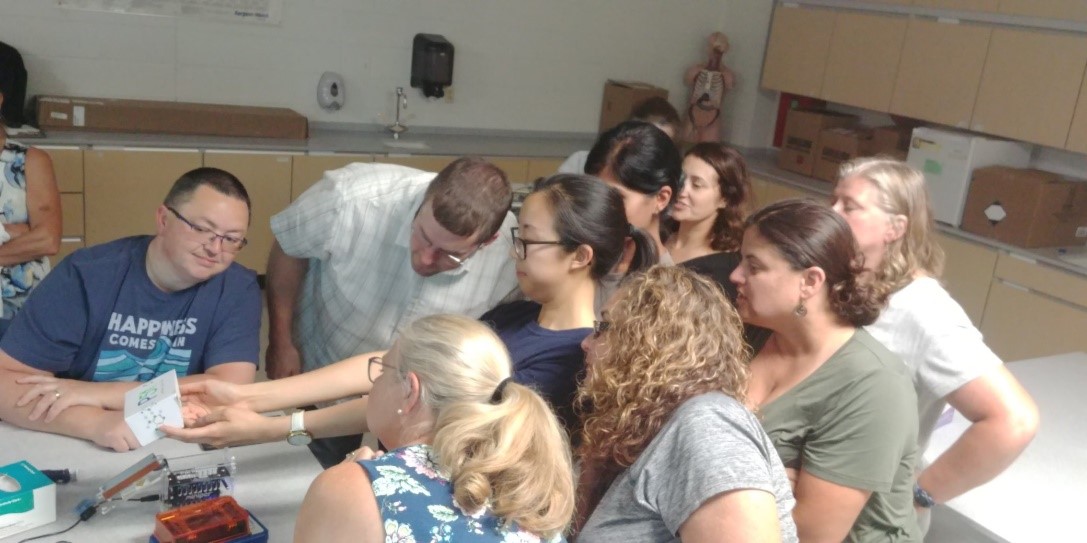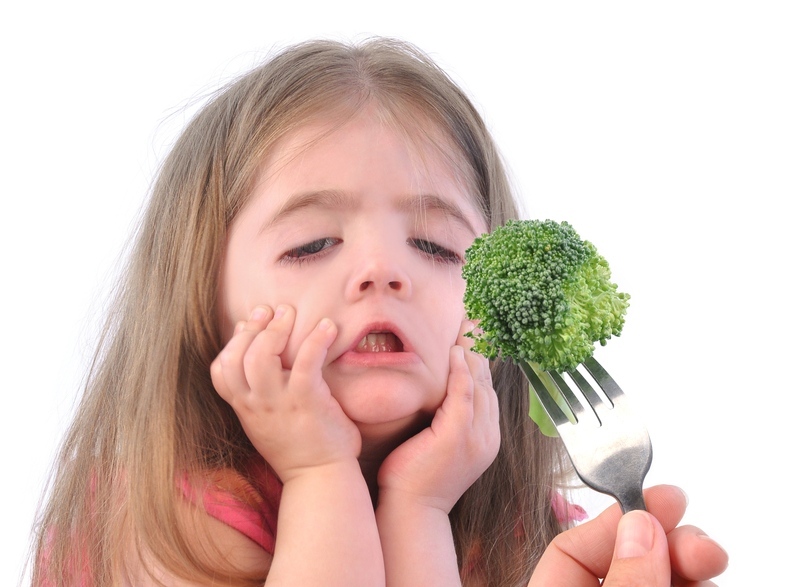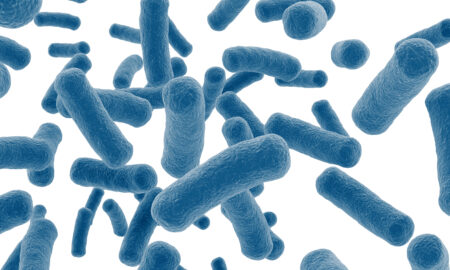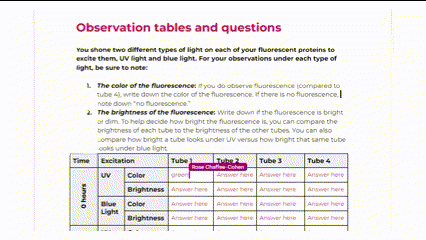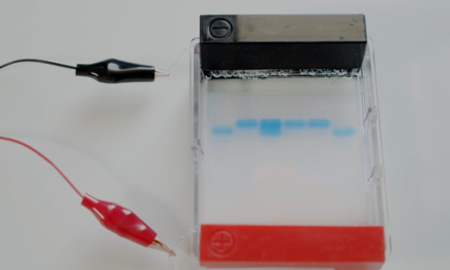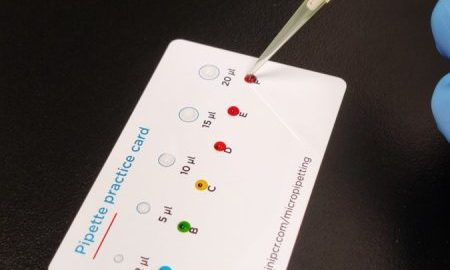Celebrating six months of BioBits®
Back in September 2019, I helped miniPCR bio launch the very first official BioBits® lab. Over the next six months, I got to see something I co-developed in grad school turn into an actual classroom tool that real teachers and students were using and learning from.
BioBits® was started as a collaboration between the Jim Collins lab at MIT and Harvard and the Michael Jewett lab at Northwestern University. Both of these labs were using a platform called freeze-dried, cell-free protein synthesis, which put simply, is an advanced synthetic biology system that can perform biological experiments without the need for living cells or specialized equipment. The cell-free reaction contains all the parts needed to express proteins without cell culture, and since they are freeze-dried into pellets, they are also shelf-stable until needed.
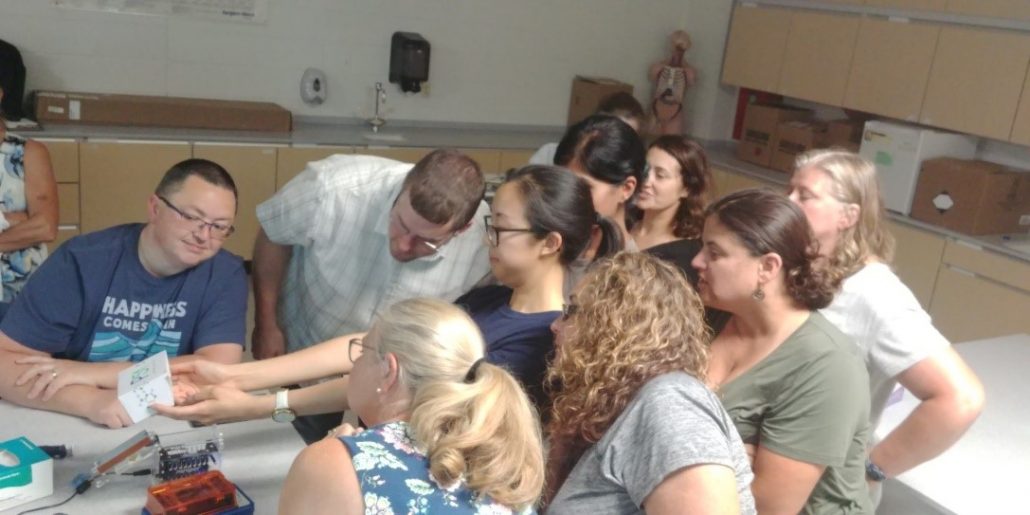
BioBits ® reactions are easy to use in the classroom because the students simply need to add water to express a variety of proteins, making it ideal for educational uses ranging from the demonstration of fundamental cellular processes to hands-on synthetic biology. After developing and testing prototypes in a few classrooms in grad school, I was ready to team up with miniPCR bio and make it available for everyone.
The first BioBits® kit that we launched is one that demonstrates the Central Dogma of Molecular Biology, or how genetic information is transferred from DNA to RNA to proteins. To date, miniPCR bio has distributed enough of these BioBits® kits to reach an estimated 10,000 users! Many of these teachers and students had great things to say about their experience using the kit.
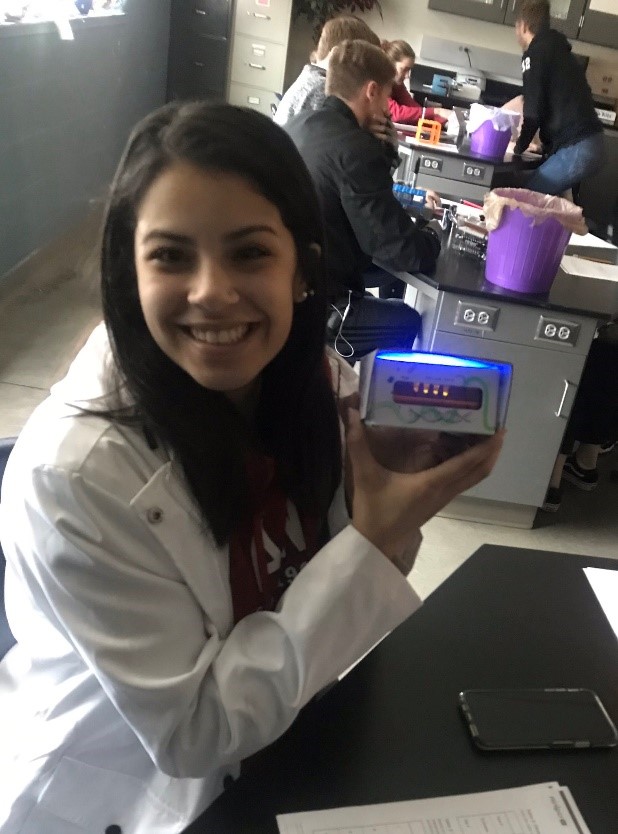
“The students felt like scientists and doctors by touching and using the laboratory materials provided during the lab,” one teacher told us, “Even the students that didn’t seem engaged were secretly paying attention and wanted to take their turn pipetting. They knew they were part of something really cool and so we were able to connect with them in a way that was new to them.”
Our local news station even took an interest. Boston’s WCVB covered the release of the BioBits® kits in a segment and highlighted their value in science education.
Beyond teaching central dogma of molecular biology, the kit is also a great way to expose students to cutting-edge synthetic biology. One student expressed to us their amazement “that science has advanced this far to harness the machinery of a cell and improve lives through a method that initially seems to be impossible to do.” To help provide more context about the cell-free technology behind BioBits®, we also wrote a DNAdots on this topic to extend the BioBits® curriculum ever further.
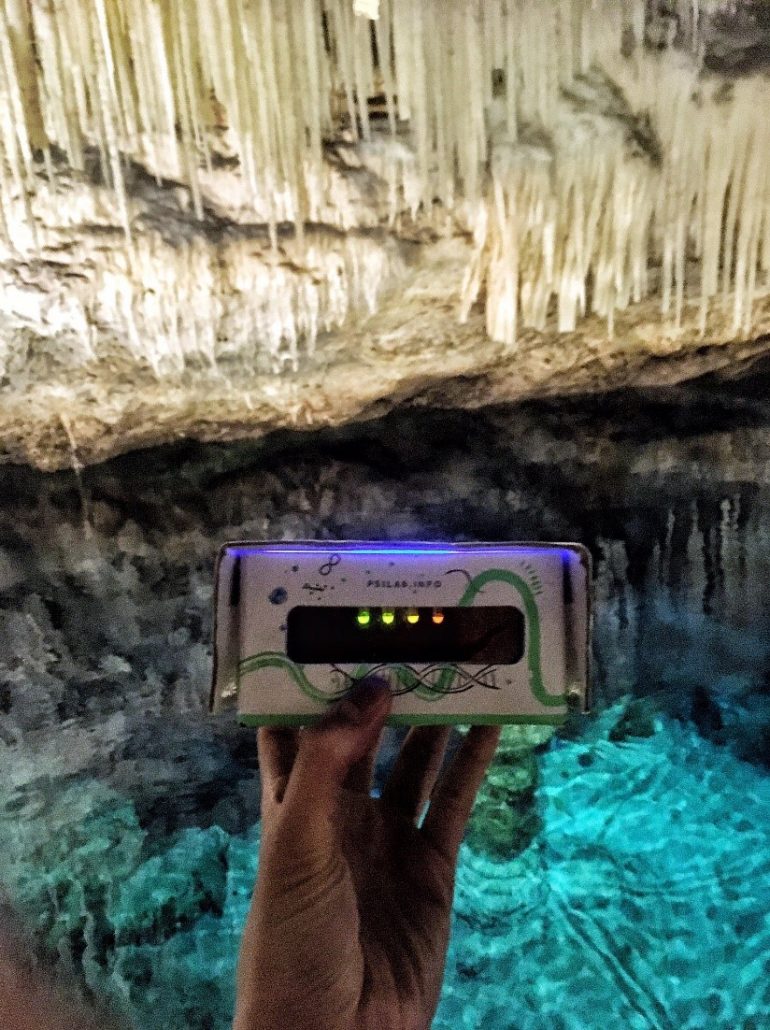
I also have had the opportunity to travel around the country to various education conferences and host workshops where teachers were able to try the BioBits® lab hands-on for themselves and see how to integrate it in their classrooms. I even got to showcase BioBits® internationally, with a conference in Ottawa, Canada, and one in Bermuda!
Even the current pandemic hasn’t stopped us – I’ve recently hosted two webinars, one explaining what cell-free technology is and how it’s used by scientists to solve scientific issues, and one where I actually did the BioBits® Central Dogma lab live in my bedroom and walked the teachers and students through what was going on. One of the great thing about BioBits® is that you don’t need a lab to do it – it can be done right at home.
Looking ahead, we’re really excited to develop and launch more BioBits® kits. Be on the lookout for one covering another popular molecular biology topic later this year, as well as other upcoming kits that will cover more advanced concepts, such as topics in synthetic biology!
— Dr. Ally Huang
